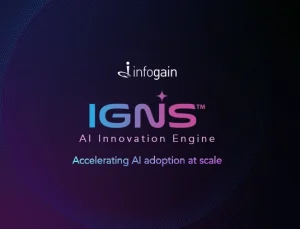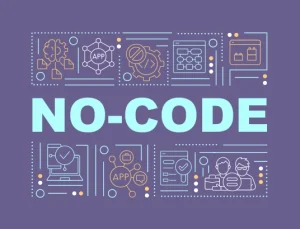- Posted on : March 18, 2024
-
- Industry : Corporate
- Tech Focus : Data & AI
- Type: Blog

People expect your company to use AI-generated insight to constantly improve the experiences you offer them. The hype around AI remains strong—with use cases and products still evolving—but every industry has already begun to implement AI-enabled solutions. Here are five trends that we see our customers addressing every day as they consider how to use GenAI to outrun the competition.
The rise of DataOps
Now that every piece of data, PDF file, and image in your company is potential data source for a GenAI solution, the barely adequate approach that many companies have trusted for structured data is likely to cause major issues. Companies need to expand Data Ops to govern the operational lifecycle of unstructured data just like dev ops manages the development lifecycle.
ContentOps makes creation a production issue
Brands that are already good at creating, serving, and tracking content internally can automate those functions at scale with GenAI. But GenAI needs quality data and smart automation to get traction, plus governance that aligns them to your culture, customers, and tech stack to make it run smoothly. Once you align those things, your best people are free to be more creative and your brand’s relationships with your external partners are open to radical change.
Conversational search helps users search less and find more
Customers can sidestep the need to learn differing vendor taxonomies and systems so users can query huge data sets and find the exact information they need quickly, using their native spoken or written language. Employees can use conversational search to find information that’s siloed in different systems around the company.
Leveraging GenAI in the SDLC lets you ship better code faster
The SDLC process has many steps and stakeholders, so it can be hard to grasp the health of projects at speed. GenAI can deliver relevant information quickly and easily, even with multiple business and tech teams involved.
Agents will help humans
Current AI applications are directed by humans, but soon, AI-enabled agents will be able to act on our behalf. Each will have a specific function and will be teamed with other agents that can execute the next best action when prompted.
GenAI has brought enormous change to business, and it will bring even more. The pace of change was accelerating before it, and now GenAI accelerates the acceleration. Any tech strategy you adopt must include AI from the outset, starting with governance and covering every aspect of execution. We’ve identified six rising trends. What are your plans for addressing them?
The hype around GenAI remains strong, but it’s clear that customers and employees expect companies to use AI-generated insight to constantly improve experiences. It’s also clear that leaders expect it to drive productivity across the enterprise.
Use cases and products cases will continue to evolve, but every industry has begun to implement AI-enabled solutions. We expect to see organizational-wide deployments of the most promising use cases, and we expect to see deployments extend into adjacent business processes and IT systems. Any tech strategy that you adopt must include AI from the outset, and this strategy must start with governance. To arrive at that, focus on users, stay grounded in what they need, and meet them where they’re ready to engage.






